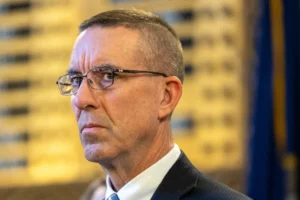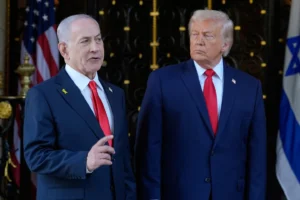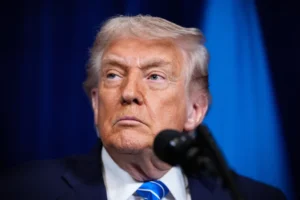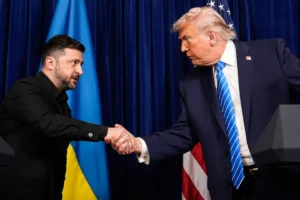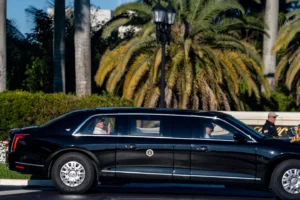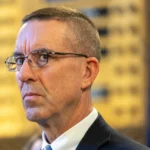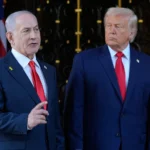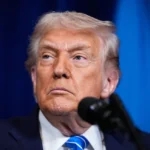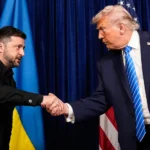Lawmakers Suggest Prosecution for Trump and Allies In Closing Jan. 6 Panel Meeting
Vice Chair Rep. Liz Cheney (R-Wyo.) said the criminal referrals would ensure “accountability” for the violence
- Published In: Politics
- Last Updated: Dec 20, 2022
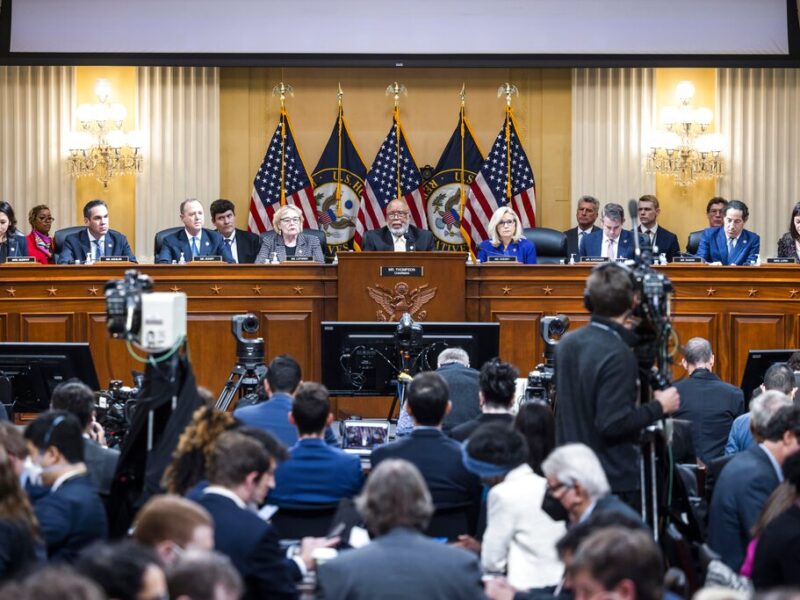
Lawmakers on the select committee investigating the Jan. 6 attack on the U.S. Capitol formally suggested to the Department of Justice that former President Donald Trump face four criminal charges, including incitement of an insurrection. (Jim Lo Scalzo/Pool Photo via AP)
By Jacob Gardenswartz
Special to the Wyoming Truth
WASHINGTON — Nearly two years after the U.S. Capitol was ransacked by a violent mob, lawmakers on the select committee investigating the Jan. 6 insurrection formally recommended charges against the man they hold most responsible for it: former President Donald Trump.
In a unanimous decision, the panel’s seven Democrats and two Republicans favorably issued their final report to the full U.S. House on Monday. Within that document — set to be released in its entirety on Wednesday — the lawmakers referred Trump to the Department of Justice on four federal criminal charges: obstruction of an official proceeding, conspiracy to defraud the U.S. government, conspiracy to make false statements and incitement of insurrection.
“This was an utter moral failure and a clear dereliction of duty,” outgoing Wyoming Rep. Liz Cheney, the panel’s vice chair, said of Trump’s conduct. “No man who would behave that way at that moment in time can ever serve in any position of authority in our nation again. He is unfit for any office.”
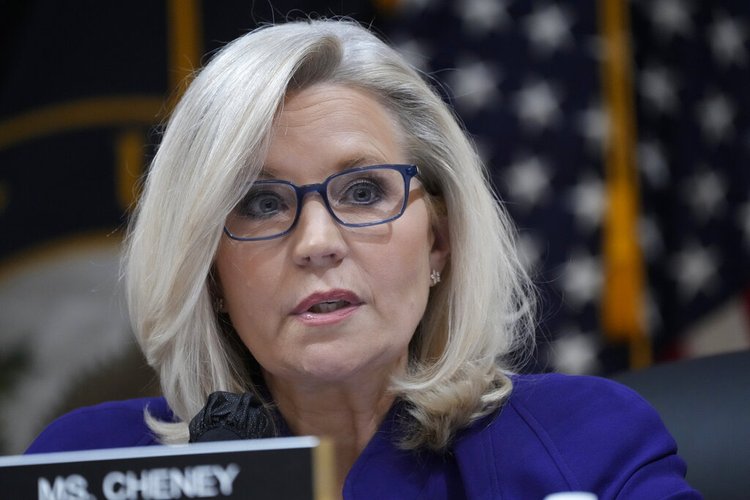
The lawmakers’ move serves a mostly symbolic purpose. Congress holds no legal authority to charge individuals with a crime, though representatives can make nonbinding recommendations to the Justice Department and share any evidence they’ve amassed to support the proposed charges. Already, the Jan. 6 panel has referred four individuals to the DOJ for charges, two of whom federal agents successfully prosecuted.
The decision whether to charge Trump ultimately will fall to Attorney General Merrick Garland and Jack Smith, the independent special counsel Garland tapped to oversee DOJ investigations into Trump’s conduct relating to Jan. 6 and his alleged mishandling of classified records at Mar-a-Lago.
But the lawmakers’ move could serve to raise public and internal pressure within the DOJ to pursue such charges, and will stand as yet another stain on Trump’s legacy: he now exists as the only president in American history to face such a censure from the U.S. Congress.
Trump himself has continued to belittle the committee, describing it on his social media platform as “highly partisan” and composed of “political hacks.” Steven Cheung, a Trump spokesman, released a blistering statement lambasting the committee as a “Kangaroo court” which has been “nothing more than a Hollywood executive’s vanity documentary project.”
But lawmakers on the committee spoke passionately of the need to hold Trump and his allies accountable.
“If we are to survive as a nation of laws and democracy, this can never happen again,” said Chairman Rep. Bennie Thompson (D-Miss.). “There’s one factor I believe is most important in preventing another January 6: Accountability.”
Committee highlights hearings, unveils new evidence teeing up final report
Beyond the historic decision to suggest criminal charges against a former president, Monday’s meeting — the final public appearance of the Jan. 6 select committee — also stood as a forum for lawmakers to review the findings presented throughout the 10 previous public hearings.
After opening statements from Thompson and Cheney and a supercut-style video displaying the worst of the Jan. 6 violence butted to clips of key witness testimony, each lawmaker on the committee detailed one section of their eight-part case against Trump. Shortly after the meeting concluded, the committee shared the 154-page executive summary of the report, with the full document expected to fall in the 1,000 page range.
In addition to the evidence supporting their criminal referral for Trump, the full report will link to video summaries of the relevant evidence accumulated, include an explanation of how investigators evaluated the credibility of witnesses and recommend legislative actions to prevent a future attack.
On Monday lawmakers also teased new evidence not previously revealed by the committee, including in-person testimony and text messages from Hope Hicks, the former White House Communications Director and a longtime aide to Trump. She told the panel she sought to tamp down Trump’s false claims of victory after the 2020 election, appealing to a desire to preserve his legacy.
“Nobody will care about my legacy if I lose, so that won’t matter,” Hicks said Trump responded to her. “The only thing that matters is winning.” Later, as the violence at the Capitol was underway, Hicks told a White House colleague Trump “refused” to put out a message to his supporters urging nonviolence, text messages showed.
Lawmakers also revealed the committee had obtained evidence that individuals tied to Trump made offers of employment to at least one witness before the panel, suggesting she “tell the committee that she didn’t recall facts when she actually did recall them,” said Rep. Zoe Lofgren (D-Calif.).
In his opening remarks, Thompson said the committee would make public the “bulk of its nonsensitive records” before the end of the year, meaning more new evidence could be released in the coming days.

